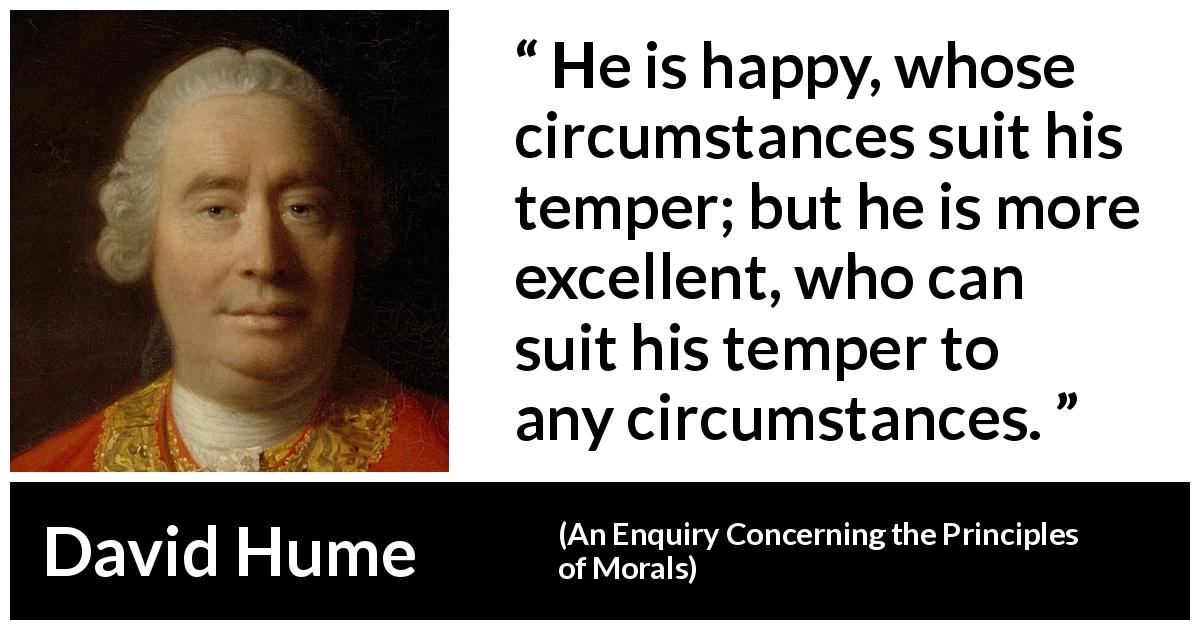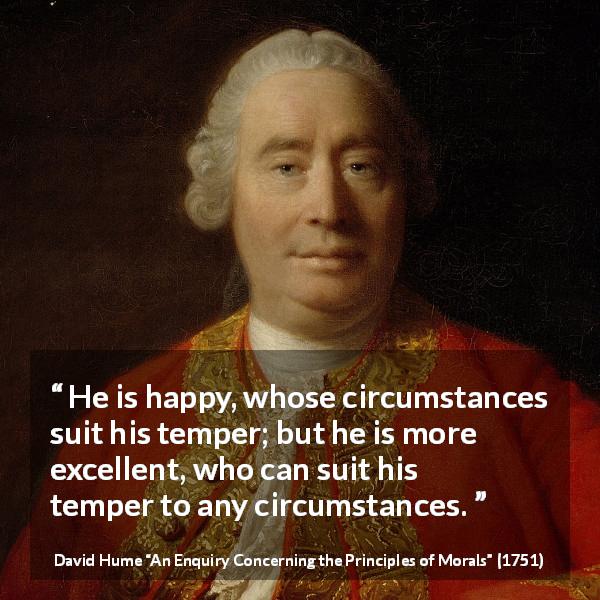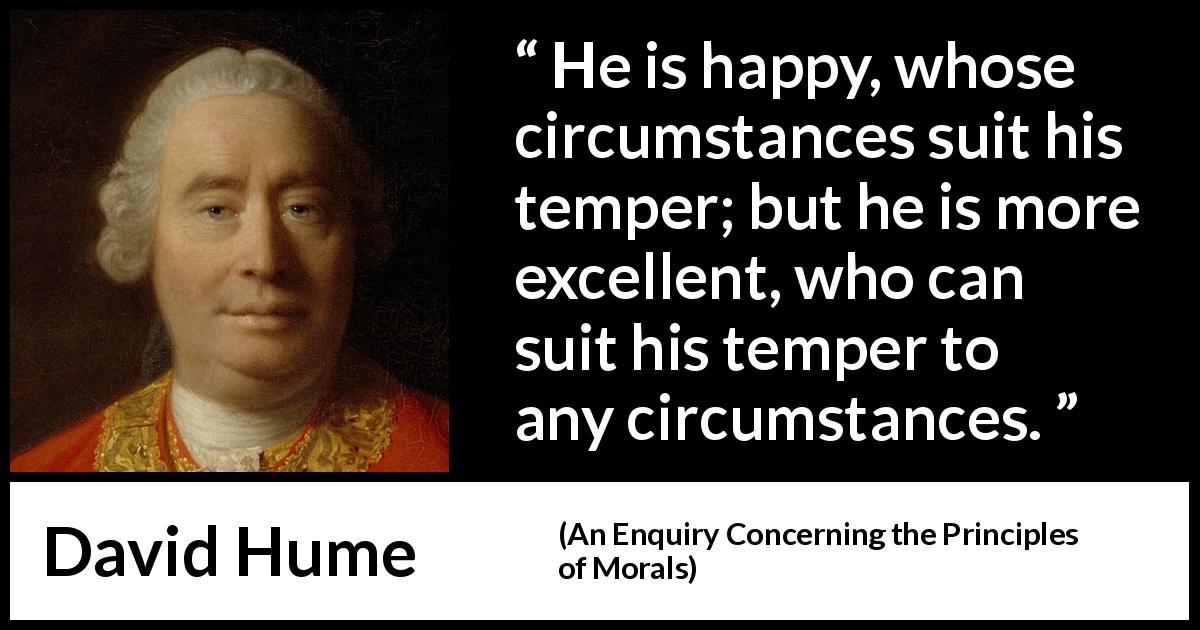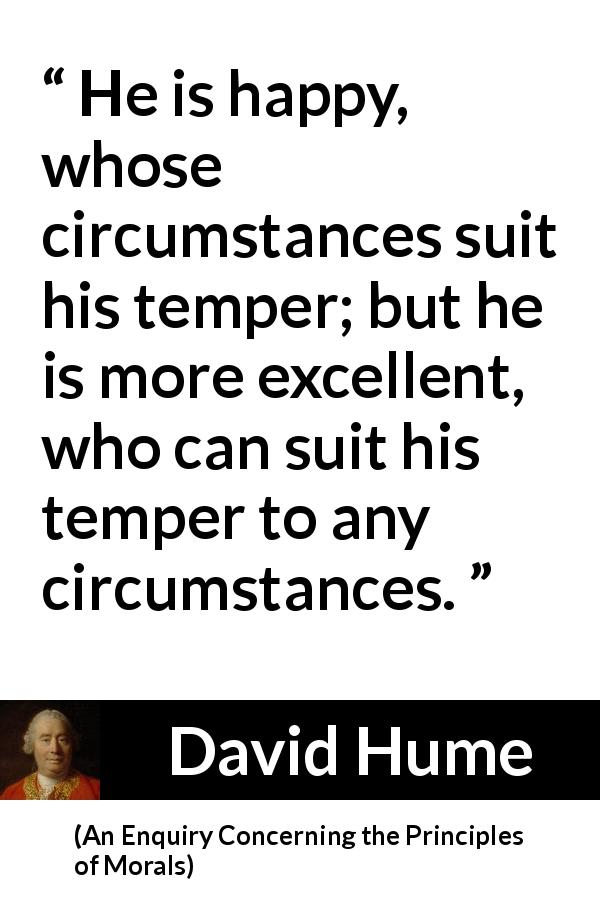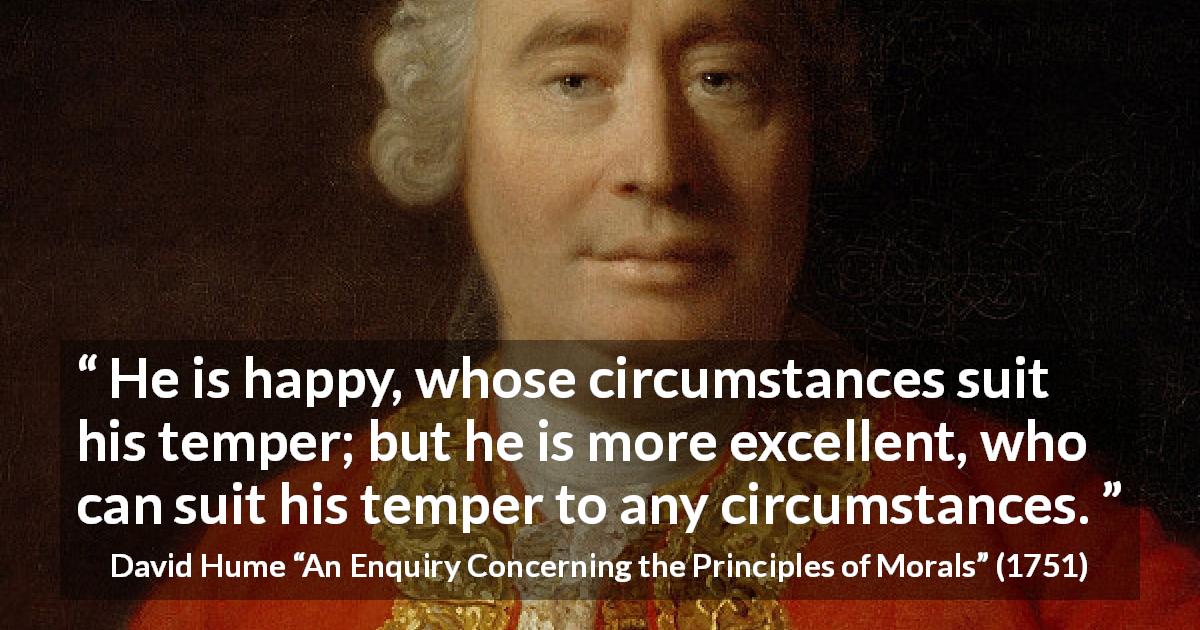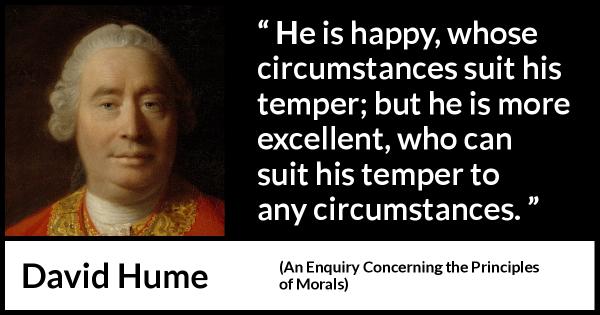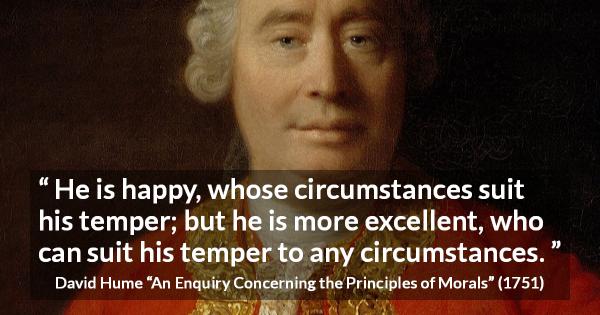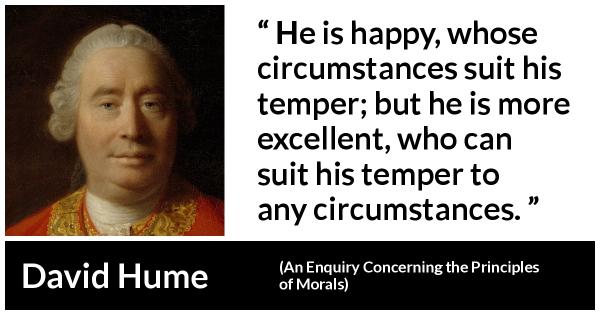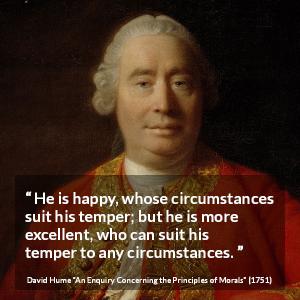“ He is happy, whose circumstances suit his temper; but he is more excellent, who can suit his temper to any circumstances. ”
David Hume, An Enquiry Concerning the Principles of Morals (1751). copy citation
| Author | David Hume |
|---|---|
| Source | An Enquiry Concerning the Principles of Morals |
| Topic | circumstance temper |
| Date | 1751 |
| Language | English |
| Reference | |
| Note | |
| Weblink | http://www.gutenberg.org/files/4320/4320-h/4320-h.htm |
Context
“Fabius, says Machiavel, was cautious; Scipio enterprising: And both succeeded, because the situation of the Roman affairs, during the command of each, was peculiarly adapted to his genius; but both would have failed, had these situations been reversed. He is happy, whose circumstances suit his temper; but he is more excellent, who can suit his temper to any circumstances.
What need is there to display the praises of industry, and to extol its advantages, in the acquisition of power and riches, or in raising what we call a FORTUNE in the world? The tortoise, according to the fable, by his perseverance, gained the race of the hare, though possessed of much superior swiftness.” source
What need is there to display the praises of industry, and to extol its advantages, in the acquisition of power and riches, or in raising what we call a FORTUNE in the world? The tortoise, according to the fable, by his perseverance, gained the race of the hare, though possessed of much superior swiftness.” source
